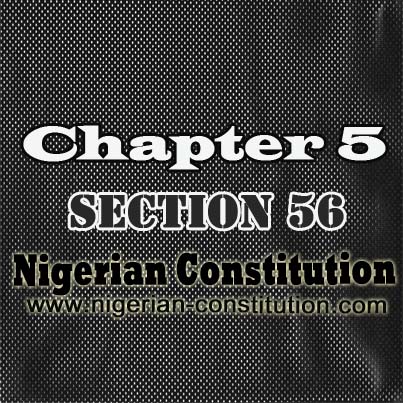(1) Except as otherwise provided by this Constitution any question proposed for decision in the Senate or the House of Representatives shall be determined by the required majority or the members present and voting; and the person presiding shall cast a vote whenever necessary y to avoid an equality of votes but shall not vote in any other case.
(2) Except as otherwise provided by this Constitution, the required majority for the purpose of determining any question shall be a simple majority.
(3) The Senate or the House of Representatives shall by its rules provide ¬
(a) that a member of the House shall declare any direct pecuniary interest he may have in any matter coming before the House for deliberation;
(b) that the House may by resolution decide whether or not such member may vote, or participate in its deliberations, on such matter;
(c) the penalty, if any, which the House may impose for failure to declare any direct pecuniary interest such member may have; and`
(d) for such other matters pertaining to the foregoing as the House may think necessary, but nothing in the foregoing provisions shall enable any rules to be made to require any member, who signifies his intention not to vote on or participate in such matter, and who does not so vote or participate, to declare any such interest.





















